Going to become a first-time bird owner, you would definitely consider which parrot species to select. I’ve got 4 cockatiels, so I love the birds, trying to pay them attention, finding some time for my pets every day, studying their individual temperaments, behavior, and tastes. But, is cockatiel vs conure more intelligent, gentle or calm? Are there any differences in the environment, food and breeding conditions? Do conures require more space than a cockatiel cage commonly provides? Let’s check.
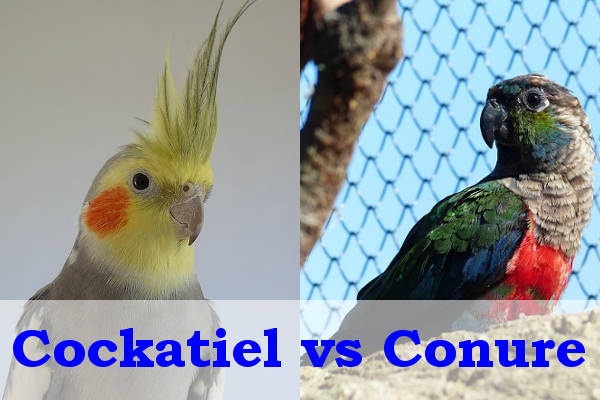
What is a Conure?
The conure is a medium-sized or small parrot that is long-tailed, commonly green-brown in color, and, presumably, with red or orange belly patch. This name can be attributed to the cone-shaped tails all conure parrots have. According to Wikipedia, the term “conure” was initially used by the Australian ornithologist Joseph Forshaw, while the scientists call all parrot species of this kind parakeets.
These birds are “New World” parrots; they come from Central or South Brazil, Mexico or Brazil, Argentina or Bolivia. There are multiple conure species, different by sizes and coloration. The basic ones are:
- Aratinga;
- Pyrrhura;
- Nanday;
- Carolina parakeet.
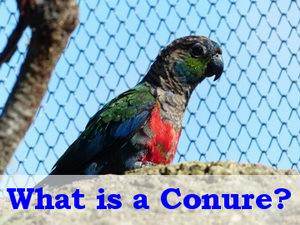 Green-cheeked conure that is called “Pyrrhura molinae” is small, up to 10 inches long and basically green, with a black, brown or grey crown. These parrots commonly live 20-30 years, being quieter than the other conure species. Meanwhile, a green cheek conure vs cockatiel is more fun and acrobatic, requiring a lot of attention, being loveable and playful, but feeling safe in her or his cage. Sun conures are quite similar in needs and personalities to the green cheeked species, standing out by the colorful plumage only.
Green-cheeked conure that is called “Pyrrhura molinae” is small, up to 10 inches long and basically green, with a black, brown or grey crown. These parrots commonly live 20-30 years, being quieter than the other conure species. Meanwhile, a green cheek conure vs cockatiel is more fun and acrobatic, requiring a lot of attention, being loveable and playful, but feeling safe in her or his cage. Sun conures are quite similar in needs and personalities to the green cheeked species, standing out by the colorful plumage only.
On the contrary, blue-crown parakeets are medium-sized birds (up to 14.5 inches long), talkative, fun, cuddly, snuggly, friendly, less biting than the other parrots, but sometimes too loud.
Are Conures Goods Pets?
Commonly, conures are friendly birds, playful and sociable. They generally prefer to stay in their cages but require more daily attention than cockatiels. The birds are fun, active and talkative, needing some training and socialization.
In terms of the care, conures are comparatively easy to breed. As well as our cherished cockatiels, these birds do need fresh water to be available in a flat utensil to drink and bathe. However, as the birds, don’t come from dry areas, it’s sufficient to change it daily.
The parakeets’ diet is very similar to the cockatiel food, consisting of pellets (60-70%), some fresh or dried vegetables, fruits, greens, and seeds. Avocado, caffeine, alcohol, salt, and sugar, large fruit seeds are toxic and not recommended for the parrots. The cage dimensions depend on the conure size, however, they should make 18” *22” *24”, at least. Big Choice Click Here!
Conure vs Cockatiel: What is the Difference?
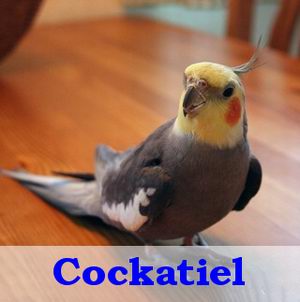 Quite naturally, cockatiel and green cheek conure are both parrot species, quite similar is behavior, sizes, and needs. Male pets commonly whistle a lot, adding some pleasure to your daily life. Meanwhile, parakeets are a commonly a bit different, being:
Quite naturally, cockatiel and green cheek conure are both parrot species, quite similar is behavior, sizes, and needs. Male pets commonly whistle a lot, adding some pleasure to your daily life. Meanwhile, parakeets are a commonly a bit different, being:
- a bit louder;
- more playful;
- temperamental;
- passionate;
- interactive.
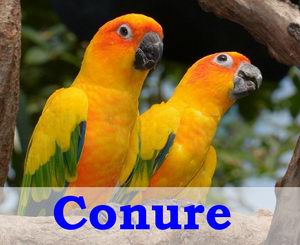 They still can be destroying, chewing virtually everything available in the room or feel scared of somebody or something, remaining in the cages. He or she can make you laugh, flying around the room or climbing in objects. Your cherished pet would require at least an hour of your attention and interaction every day. Otherwise, the bird can be bored, becoming not active or even aggressive, showing frustration.
They still can be destroying, chewing virtually everything available in the room or feel scared of somebody or something, remaining in the cages. He or she can make you laugh, flying around the room or climbing in objects. Your cherished pet would require at least an hour of your attention and interaction every day. Otherwise, the bird can be bored, becoming not active or even aggressive, showing frustration.
Meanwhile, hearing a green cheeked conure screaming (quite loud, harsh and disgusting), realize that your lovely pet may be hungry, thirsty or striving for getting out of the cage and flying for a while, or playing.
Do Sun Conures Talk?
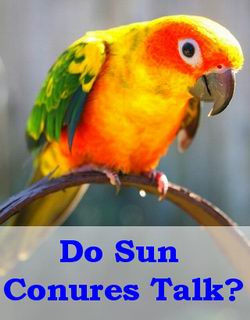 The basic benefit of having conures at home is their ability to talk, repeat some works and phrases that can be really funny and enjoyable. A blue crown conure talking clear is more common than a green cheek parakeet. However, the parrots are not able to learn speech or mimic human language. They can learn some tricks, but training is time-consuming and a bit complicated, as it requires a lot of efforts and multiple repetitions. The parrots are great for beginners, being talkative, snuggly and friendly. You can even improve the individual conure behavior with training. However, generally, conures are colorful, pretty to look at, comic, but still pretty stupid, not the easiest to train. Additionally, they are commonly attracted to one owner only, tolerating other people.
The basic benefit of having conures at home is their ability to talk, repeat some works and phrases that can be really funny and enjoyable. A blue crown conure talking clear is more common than a green cheek parakeet. However, the parrots are not able to learn speech or mimic human language. They can learn some tricks, but training is time-consuming and a bit complicated, as it requires a lot of efforts and multiple repetitions. The parrots are great for beginners, being talkative, snuggly and friendly. You can even improve the individual conure behavior with training. However, generally, conures are colorful, pretty to look at, comic, but still pretty stupid, not the easiest to train. Additionally, they are commonly attracted to one owner only, tolerating other people.
Thus, I have selected my cherished pets for cockatiel intelligence and friendliness. These birds are cuddlier, easier to train, quieter, gentle and gregarious, accepting new people, including kids, as well as other pets. So, I appreciate my cockatiels behavior and thank my cherished Nigel and Loki, Sweetie and Yo-Yo for a lot of fun and great playing experience.



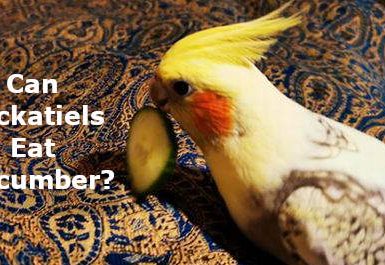
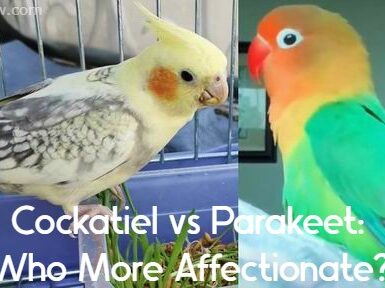
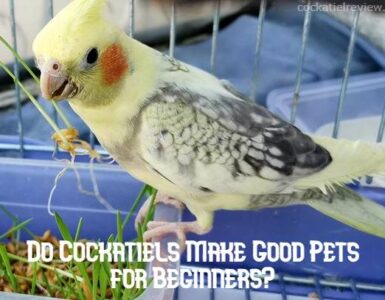
Hi, I’m Kellie from Queens, NY,
I have 2 Sun Conures,Rosey & Petey & 1 Cockatiel, Chui. My comment/question is, I have not noticed my cockatiel bathing like the conures. So, do cockatiel like water the same way conures do, will my cockatiel bath like my conures?
I want to tell you that all birds, as well as people, have their own preferences and habits. I can’t say that all my birds love to swim. But, for example, Sweetie – bathes with great pleasure than Nigel. That’s all I can say 🙂
Hi Charlie, my mother recently passed away. She owned a Conure named Sundance whom I am now caring for. He pecks me when I try to feed him and change his water. I’m so tired of being pecked but I know in my heart she’d want me to care for him. Any advice?
Hi Nikki, I sympathize with you from the bottom of my heart.
I think your bird is grieving and bored, just like you.
I think over time, everything will work out for you.
The tip is simple! Keep caring for bird, give your favorite treats and play with Sundance familiar toys.
@Charlie
Hi, I’m Mustafa from Bangladesh and new at keeping birds as pets (my grandchildren). Would love to have a couple of Cockatiels. Are they prone to various illnesses? What would be a hardier, more robust yet similarly friendly, sociable and loving bird that may be included in our family.
Thanks a ton.
Hi Mustafa,
I want to please you, cockatiels are wonderful pets, of course, if you give them enough attention and care. They do not like loneliness very much and are strongly attached to their masters. With proper care, they do not get sick, they are quite hardy and funny)
I like your topic, but many of your comments on conures come off as weird and very biased. I have lived with and loved both conures and cockatiels, and your account of conures doesn’t at all match my experience.
1. Conures don’t like to stay cages any more than cockatiels– and perhaps even less so.
2. Although loud, they don’t sound ‘disgusting’ and some (Duskys, Green Cheeks) are on the quiet side.
3. almost anyone who has had both species say almost always find a green cheek to be a good deal smarter, much quicker at learning new tricks and and problem solving and that that they the confidence to master a variety of situation. They are bold and aggressive whereas cockatiels are often rather sweet but easily frightened. Cockatiels are smart but their personalities and body mechanics (stiffer, less use of foot to manipulation items) limits them.
4. Along with Cockatoos, Conures are well-known to be, with Cockatoos, the most cuddly of birds. My cockatiels were like to be held and handled and sratched, but rarely were then as intense and needy of to be hugged as these conures.
On the downside, conures are nippier than Cockatiels, excessively playful in a rough way and demanding, They can’t whistle as musically and charmingly as a cockatiel. And because they are a great deal more curious than almost any other bird I know, they get into trouble and have to be watched, which is a pain. I always trust my cockatiels.
I could say more but the point, you really sure revise this page and at the same time,
learn more about conures.If you can’t adopt one, I recommend that you go to forums and read what parrot people say about their bird experiences. You’ll learn a lot.